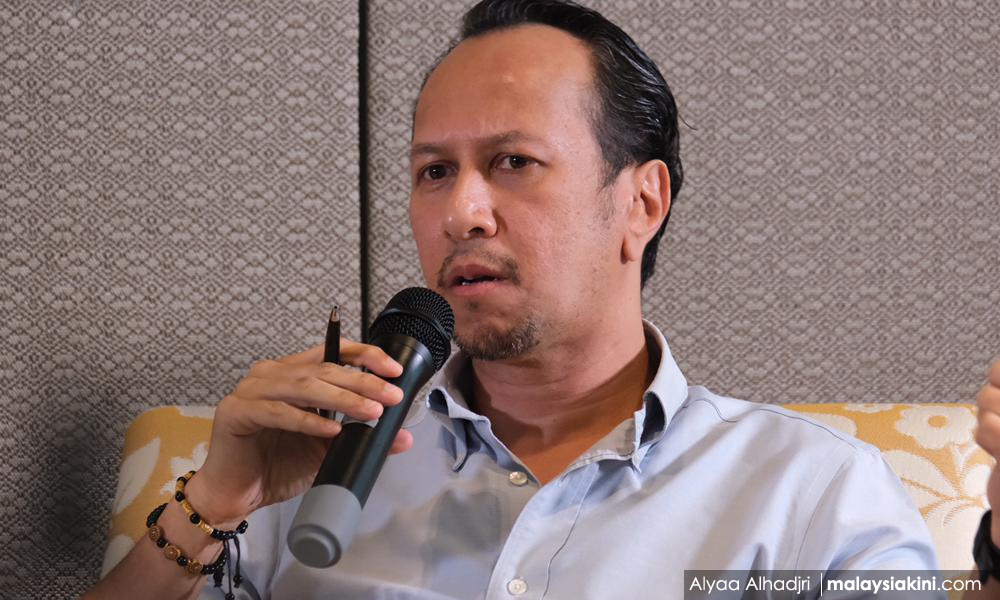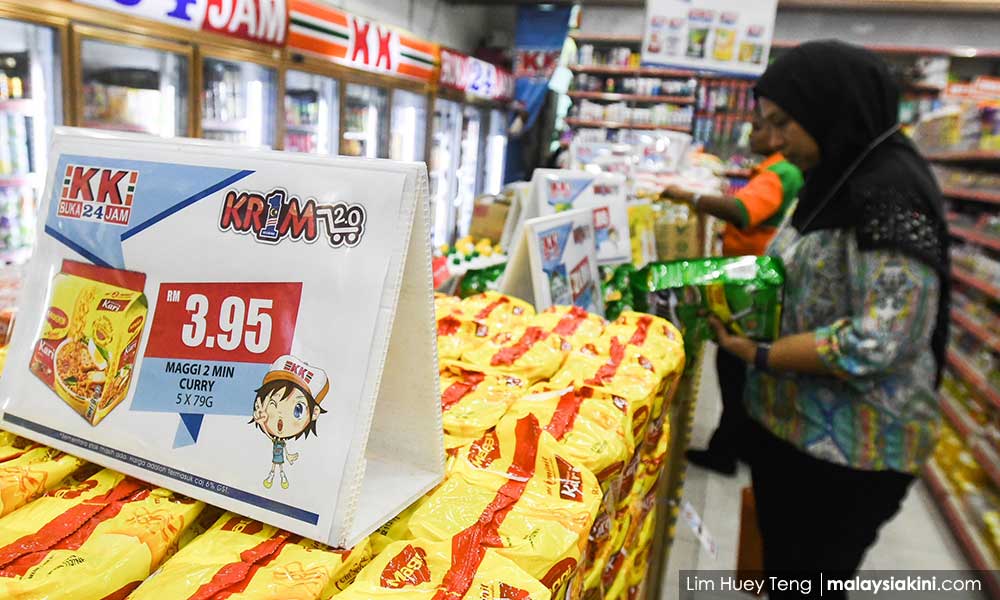Annuar Musa is always on time. He was among the earliest batch of politicians who arrived at Sheraton Hotel on Feb 23, 2020, which kickstarted the country’s most vicious coup. That evening, he arrived so early that he had a few more hours to chat with the journalists at the lobby. Though wanting to appear secretive, he could not help himself and told everyone that Pakatan Harapan has fallen – he wanted to be the first to say it.
Sixteen months later, he had a different task: This time, to go on national television, RTM, and explain how the government has not failed – it simply has not succeeded. The live broadcast was at 6pm. He made sure his team prepared adequately – and he made sure he arrived on time.
After a long day of rushing and arriving on time, he was exhausted and hungry. In the constant replay of the people’s complaints (job losses, depressing wages, companies shutting down, starvation, and deaths) in his head, he thought of having curry-flavoured Maggi.
A bowl of springy yellow noodles sat on red-orange broth, one egg was mixed in, with a few pieces of diced chicken by the side. He looked at the bowl curiously while sitting on his comfortable grey chair, and he pulled the noodles to his mouth, with brows raised in a furrow.
“Just finished [broadcasting] BICARA NERATIF live on RTM. I am tired and hungry because I hadn’t had dinner. Straight from DBKL to Angkasapuri. Finally, I am saved by Maggi Curry with eggs. Alhamdulillah,” he tweeted. It was 11pm, supper time.
Annuar (above) follows a long line of ministers who have posted photos of them eating Maggi since the start of the pandemic. Against the repeated grievances of losing jobs and falling incomes, photos of ministers eating Maggi serve as a defence. A bowl of hot Maggi – typically curry-flavoured, mostly soggy – closes the gap between the ministers and you.
In different ways, it is saying, “I live just like the poor”, “I am suffering too”, and “I am just like you.” But almost inevitably, the play-act would fall short of its intended outcome.
'I live just like the poor'
Food is not just about “simply preparing ingredients and consuming the final product,” it is more than that. What you eat is determined by what you can afford – it is a reflection of your social status, your lifestyle, and your station in life. At barely RM0.75 per pack, the Maggi two-minute Curry Flavour Noodles is a commoners’ meal.
Since Covid-19 struck, more and more poor families are eating more instant noodles than before, with Maggi curry leading the pact. Instant noodles consumption is at an all-time high of 1.57 billion servings in 2020, averaging 4.3 million per day.
This is not because they think Maggi is the most delicious, but because losing jobs, cut-back working hours, and the difficulty of accessing social protection and healthcare meant that they had to go with what is the cheapest.

“The change in diet was quite shocking,” said economist Muhammed Abdul Khalid. “We can already predict issues of malnutrition. One in three kids already face malnutrition, and with schools shuttered many children were not even able to access government-funded breakfasts.”
How it looks like for poor Malaysians is not choosing from a set menu on what to eat; instead, choosing Maggi over and over again because you are stranded. Occasionally you can add some cili padi, sometimes a few pieces of tofu or vegetables, to give yourself some semblance of nutrition, or some illusion of pleasure.
Without this context, ministers will inevitably fail to empathise. They would try, despite their wealth, to eat things below their social status, but with their imaginations of how the poor lives.
They would eat with real protein like chicken, using expensive bowls and heavy utensils, wearing a limited-edition Swiss luxury watch, donning tailored clothes, sitting on a comfortable couch, under an air-conditioned room, feet above cooling marble floors, in front of expensive paintings, in a pristine, well-lit, odourless bungalow.
This is not unlike the scene in the Oscar-winning film, Parasite. The rich Park family demanded a simple meal after a long day out. Mrs Park asked her helper to prepare Ram-don (ramen and udon), but completed with one of the most expensive cut of beef, Hanwoo.
Instead of trying to show that they understand how commoners live, they showed the opposite. They are so out-of-touch that this is their best imagination of how eating Maggi must be like – not too bad, after all.
'I am suffering too'
For a poor person, the most pressing question every day is “Can I afford a meal or must I skip?” And if I can afford a meal today, would it be Maggi? If you are a student in a public university, in two out of five days, your answer would be “yes”.
A poor person’s striving, therefore, is how to afford something that is not-Maggi. If you skipped too many meals, you are in trouble. If you had Maggi for too many days in a month, you have nothing to be proud of either.
That is why a commoner called Moza Rella was curious as to why ministers raced to take photos of their Maggi. “Why is it that ministers love to take photos of their Maggi? For a person who has Maggi day and night like me, I haven’t thought of taking photos of it.”
Photos are typically taken to commemorate or share something with your friends and family. Why would a commoner share about their plain, protein-less Maggi, created from stirred hot water and powder, with only a hint of anything real? Why would anyone share something embarrassing?
For ministers, however, this is entertainment and leisure. Between their nutritious quinoa-led 5-meal-a-days, Maggi could act as a one-off guilty pleasure and a political weapon. Prepared by a house helper in a kitchen with ample fresh foods to feed the family many times over, Maggi is an excess by the powerful and wealthy. The high-sodium and TBHQ (chemical preservatives) content of Maggi could be washed down by detoxifying fruit juices with rare ingredients of beets, kale, ginger, and green apples.

It is tempting for ministers to show the people that they are in the same boat of suffering during the pandemic months. But the fundamental contrast in how ministers and commoners understand Maggi makes any photoshoot of eating Maggi almost pathetic.
“I am just like you”
At the heart of what ministers are trying to do with Maggi photo is appear relatable to the common Malaysian. More than saying they understand and they suffer the same way as the people, ministers are trying to show that, by eating Maggi, they are us.
But no matter how much these ministers try, the system they inhabit would irretrievably enforce a permanent distance between them and the people.
The economic backdrop is important. Income inequality has worsened since 2016 and with the birth of the B50 category, the poor have become poorer. Unemployment and underemployment, business closures, wage levels, social protection access have all fallen into the red. Economic relief programmes are ridden with quantum shortages, bureaucratic challenges, unequal and incomplete distribution.
And the most that ministers are willing to do is a three-month salary cut. Their current jobs remain secure, their pay from September remains certain, and their drivers, security, entertainment, telephone, helpers, house, vacation all remains intact.
In any system that demands a permanent distance between the ministers and the people, Maggi photos are symbolic at best, and insulting at worst.
But there is one last danger that is graver than the rest. By inadequately assuming the problems of the people, ministers are trivialising and cheapening the people’s real pain and suffering.
In their attempt in saying “I am suffering just like you”, they have actually said “Your problems are so small, I could swallow them in one scoop.” - Mkini
JAMES CHAI is a legal consultant and researcher working for Invoke, among others. He also blogs at jameschai.com.my. You may reach him at jameschai.mpuk@gmail.com.
The views expressed here are those of the author/contributor and do not necessarily represent the views of MMKtT.




No comments:
Post a Comment
Note: Only a member of this blog may post a comment.